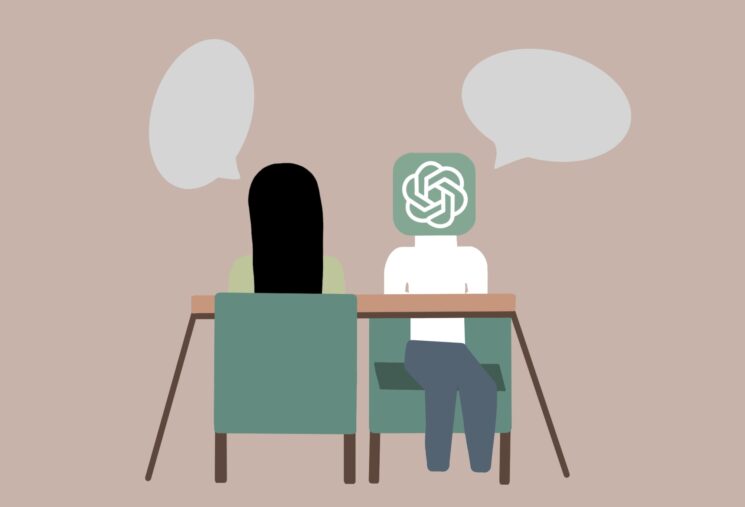
By Priscilla Le
In November of last year, I wrote an article titled, “Stop the robot takeover,” wherein I explained the impending doom we humans have placed ourselves in with the advancement of artificial intelligence (AI) technology.
Since writing about our impending doom, developments have been made, namely the popularity and mainstream use of Chat GPT, an “artificial intelligence model…capable of understanding and responding to human dialogue in a very sophisticated and speedy manner” as defined by Funmi Looi Somoye.
But it is not only limited to conversations it can have with humans.
You know that essay you’ve been procrastinating? Chat GPT has got you covered. Having been trained on a substantial amount of text data from the internet, Chat GPT can zip out human-like text responses to any given prompt. That means it can “answer questions, converse on a variety of topics, and generate creative writing pieces,” as defined by ChatGpt’s website, effortlessly.
What an amazing advancement! Gone is the anxiety of that horrid English essay. Sayonara to the presentations you have to ardously prepare for. Begone all research and writing! We’re in a new stage of human advancement—one in which we willingly withdraw ourselves from different forms of expressed thought.
Wait…what?
From essays to presentations to lesson plans, Chat GPT can do it all. The question that remains then is should it do it all?
Essentially, if the AI is doing all the work, what are we doing? If we choose to do nothing and let Chat GPT take over our lives, we’re technically ridding ourselves of any form of expressed thought—essays, speeches, presentations or anything really—for a bit of convenience.
And the scary thing is, we are all but willing. The fear of AI finds no solid foundation next to the relief of work. And as humans, we are all too eager to take the path of least resistance. Well, the consequences won’t be as insignificant as we think.
AI is continually being utilized with little caution. If it continues to be used so liberally, we risk deindividualization and a loss of free thinking at our own hands.
Students can use Chat GPT for all their writing needs, from essays, assignments and more. Yet they don’t realize the purpose of such assignments. No, they are not busy work (though some might be).
Essentially, English classes (or their assignments thereof) allow for the mind to think—to have an individually unique idea, write it down and share it with the world. To have that ability is to have a free mind—a mind in which people can come up with their own interpretations and stick with them.
If a robot’s doing all that heavy lifting for you, not only will you miss out on an experience to speak your mind, but you would have volunteerly given up your voice. Without a voice to communicate with, you’re nothing but a sack of meat on this earth, waiting until your expiration date.
Chat GPT is time efficient, extremely useful and handy. But at what cost? At the cost of organic human thought.
Yes the robot is smart, and yes it can think of things we haven’t. But it doesn’t understand experience. It doesn’t understand the pangs of hunger, displacement from war, racisim or cultural influences. These characteristics of human life that deeply impact us are noted in the algorithm yet irrelevant.
When we give up our voice in the place of convenience, we give up the human experience, something that not even the smart AI can replicate. We are unique and we cannot give that up.
In my previous article, I attributed our demise to the advancement of robots but that is wrong. Our demise will come not when robots pull us out of the equation but when we willingly do it ourselves.





